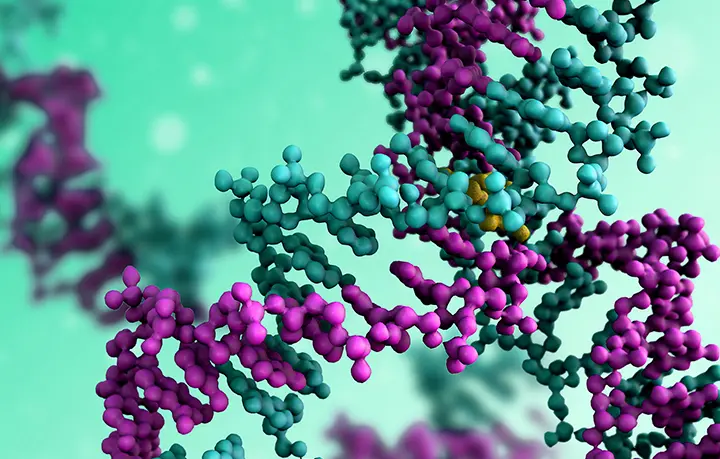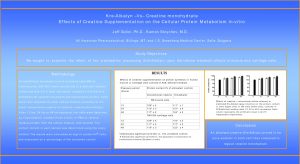Kre-Alkalyn® –Vs– Creatine Monohydrate Effects of Creatine Supplementation on the Cellular Protein Metabolism In-vitro
Jeff Golini, Ph.D., Kamen Stroychev, M.D.
All American Pharmaceutical, Billings, MT, and I.S. Greenberg Medical Center, Sofia, Bulgaria
Study Objectives
We sought to examine the effect of the stabilization processing (Kre-Alkalyn®) upon the cellular metabolic effects in muscle and cartilage cells.
Patients and Methods
An established monolayer culture of muscle cells (RD) or chondrocytes (SW1353) were subcultured in a deficient medium containing only 2.5 % fetal calf serum, instead of 10% which is mandatory for optimal cell growth and maintenance in-vitro. Clls were then exposed to either culture medium (controls) or 0.5 mmol conventional creatine or buffered creatine (Kre-Alkalyn®). After 12 hrs, 24 hrs or 48 hrs exposure, the cells were detached by trypsinization, washed three times in PBS to remove residual protein from the culture medium, and counted. The protein content in each sample was determined using the Lowry method. The results were calculated as mgs of protein/106 cells, and expressed as a percentage of the untreated control.
Results
(Detailed numbers can be seen by clicking the Research Poster Presentation image below)
Summary and Conclusions
An alkalized creatine (Kre-Alkalyn®) proved to be more anabolic in both cell lines compared to regular creatine monohydrate.
Research Poster Presentation Image:

